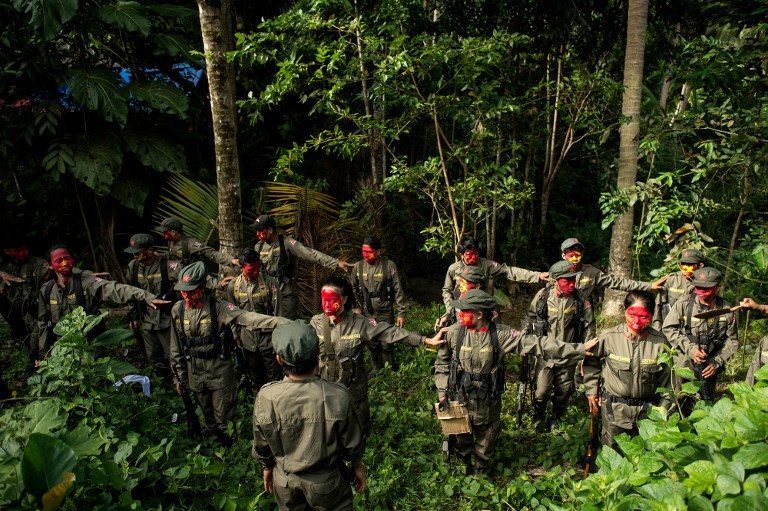SUMMARY
This is AI generated summarization, which may have errors. For context, always refer to the full article.

MANILA, Philippines – The Communist Party of the Philippines (CPP) denounced the proposal to revive the Anti-Subversion Law that could make communism illegal, the party said in a statement on Wednesday, August 14.
“Given the propensity of Duterte and his military officers to accuse people of being communists or associated with the CPP, the revival of the Anti-Subversion Law…will only result in military and police abuses and violations of democratic rights far worse than what we have already experienced in the past 3 years,” the statement went on.
The CPP said the measure was used to “unjustly” incarcerate activists accused of being communists when it was in force from 1957 to 1992.
Reviving the law would only “further rouse the people to resist [Duterte’s] tyranny” and “foment greater dissent” because it would not solve social and economic roots of armed rebellion, the CPP added.
On Tuesday, August 13, Interior Secretary Eduardo Año told the Senate committee on national defense and security that reviving the Anti-Subversion Law was necessary to end the communist rebellion in the country.
Año said he wanted the measure to specifically target the CPP and leftist groups that supposedly serve as the party’s “front organizations,” as law enforcement cracks down on the alleged recruitment and kidnapping of minors by such groups to enlist them in the New People’s Army (NPA), the CPP’s armed wing.
Strong opposition
Senator Panfilo Lacson, chairman of the committee, said he was not inclined to support Año’s proposal because it would “encroach on the fundamental right to a peaceful assembly, to protest.”
Leftist groups are not a problem as long as they do not recruit minors, Lacson said, and that a pending petition to officially identify the CPP-NPA as a terrorist group would outlaw it under the Human Security Act or the anti-terrorism law.
Senate Minority Leader Franklin Drilon likewise “strongly opposed” reviving the Anti-Subversion Law, saying that “mere membership in any organization is not a crime.”
“The Anti-Subversion Law was ‘buried’ a long time ago for it was proven that such a policy, aside from being prone to abuse and a tool to harass, undermined some of our basic Constitutional rights,” Drilon said in a statement.
Republic Act No. 1700 or The Anti-Subversion Law, enacted in 1957, outlawed the CPP and punished membership in it with 12 years in prison.
It was repealed by then-President Fidel Ramos in 1992, when the government initiated a peace process with communist guerillas. – Rappler.com
Add a comment
How does this make you feel?
There are no comments yet. Add your comment to start the conversation.